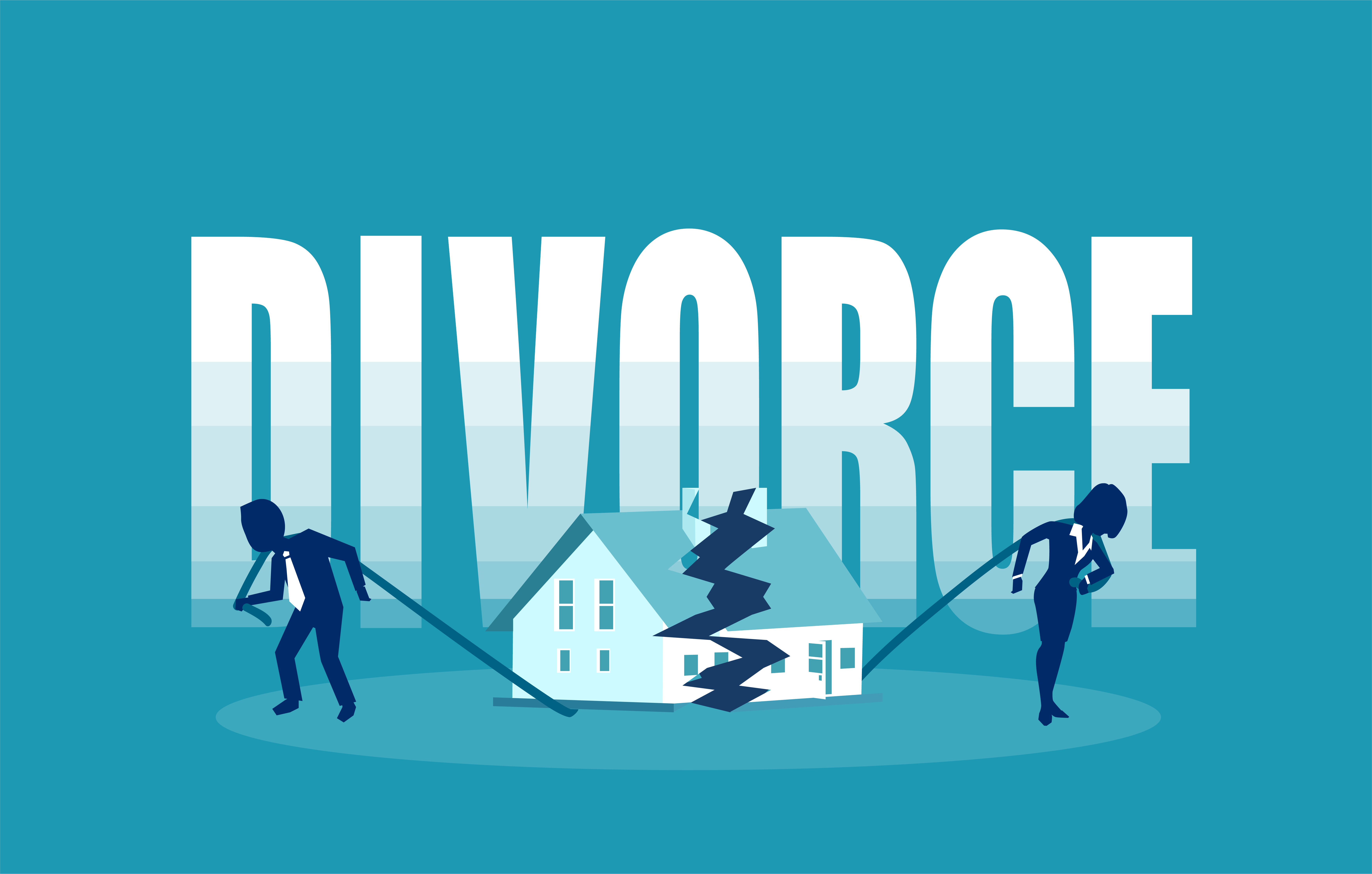No two divorces are the same, but it is invariably one of the most challenging times of life when people are at their most vulnerable. In the early days financial needs may be as simple as opening a current account in a sole name and ensuring that bills are paid on time. But finances in divorce will soon become more complex as matters such as sharing the home, dividing pensions, and establishing maintenance payments become paramount.
Financial adviser Scott Kerr offers advice on four key areas to sort in divorce.
Day-to-day banking

In some cases your estranged partner may have been the person that controlled the personal banking side of things so dealing with these practicalities can be an extra headache you don’t need.
The main monetary concerns during divorce are undoubtedly the house, maintenance, and pensions; however, the most immediate issue to overcome is day-to-day finance.
Maintaining joint accounts that pay the bills and establishing your own current account to ringfence your living expenses are important issues to address within days and weeks of the separation.
Failure to get this part right can cause unpaid bills, debt, and credit problems which can have a knock-on effect later in proceedings if, for example, a mortgage is needed to remain in the family home.
I’ve helped with many cases where it is completely amicable and both parties want to cooperate to ensure bills are paid fairly during the break-up. I’ve also seen difficult situations where one party empties all of the accounts leaving short-term devastation.
Pensions

Pensions are a mystery to many people so it’s a vulnerable area to assist with during divorce. In many/most instances the pension is a more significant asset than equity in the house, so it’s crucial that you receive the right advice and support.
Statistics show that people who have been through a divorce are far more likely to suffer financial hardship during retirement than those who have not. A huge part of this is that pensions have not been fairly divided between both parties.
Furthermore, hardship created by a divorce is not something felt equally by men and women. A report by the Chartered Insurance Institute (CII), “Risk, exposure and resilience to risk in Britain today” emphasises that divorce and separation are a significant financial risk to women left “vulnerable” by joint decisions made while they were in a long-term relationship.
The average divorced woman has less than a third of the pension wealth of the average divorced man, while 10% more divorced women expect to rely on the state pension than men, 41% of whom have an occupational pension. To compound this issue, women are more likely to have more caring responsibilities, and to suffer mental health problems.
Broadly speaking there are four options available when dealing with pensions in divorce.
- Ignore it because it all looks too complicated. Clearly this shouldn’t be an option at all but I’ve included it as, unfortunately, this is one of the most common outcomes during a divorce.
- Offsetting. Prior to December 2000, pensions were dealt with by offsetting and earmarking. Offsetting simply means that one partner’s pension is traded against other assets from the marriage to give each other a ‘fair value’. However, things to look out for when offsetting are under reporting the true value of a pension, or placing more focus on other assets such as the home in favour of ignoring a pension. In many cases the pension is the largest asset and care must be taken to ensure any offsetting takes account of its full value.
- Attachment/Earmarking. This means that a proportion of the pension is specified ‘earmarked’, to go to you from your ex-partners’ pension upon retirement. This does not allow for a clean break and the control of the pension remains with the member. Attachment Orders are not used frequently and this option is becoming increasingly rare.
- Sharing. The Court makes a Sharing Order, the partner will receive a share of the member’s pension, called a Pension Credit. The Pension Credit will be a percentage of the pension, and the amount will depend on the circumstances of the case. The pension is essentially split into separate pots for the future. If the pension scheme allows the share to be transferred out, then the share is either transferred into a new pension or ring-fenced as part of the former spouse’s pension scheme. This option offers a clean break because each party has their own separate pension and are not therefore bound to retire at the same time.
Maintenance

Child maintenance is relevant in any break-up where children are involved. In most cases the level of maintenance payment is reached by agreement or using Child Support Agency calculations – https://www.cmoptions.org/en/calculator/
If the party responsible for paying the maintenance payments (the payer) dies whilst the children are still dependent the maintenance payments will cease and if the payer fails to make appropriate provision in a Will or if there is no Will the children are no longer next of kin, a claim on their behalf can be made under the Inheritance (Provision for Family and Dependants) Act 1975.
Setting up a life assurance policy in the name of the maintenance payee with the payer as the insured can help to provide additional security in these circumstances.
Your Home

This is the financial matter to create more emotion and upset during a separation.
The home in which you feel safe and secure becomes simply another asset; ‘the former matrimonial home’ (FMH) to give it it’s legal name. It is very important to act with sensitivity when dealing with the home. Regardless of whether one or both parties wish to remain living there, it’s important to maintain all payments associated with it.
Mortgage, home insurance and bills must all be maintained. If you have been left in a position where you can’t meet the payments, contact all parties involved to explain the situation and set up arrangements to pay what you can.
Banks and mortgage providers do have a duty of care to deal with customers sympathetically. How good they are at being sympathetic will vary from bank to bank and is a point of contention; however, it’s always best to keep communication open so they know and understand your position.
At some point you may need to secure a mortgage to buy your partner’s share of the equity, or to buy a new property for yourself. At this stage it will be important that you’ve maintained a good credit rating throughout the break-up.
Don’t, for example, get a county court judgement for refusing to pay credit for a TV because ‘they took the TV and you’re not paying for it’. It seems daft but I’ve seen this happen!
Clearly I’ve scarcely scratched the surface of financial considerations in divorce here. For a free confidential chat, pick up the phone or send an email and I’ll do my best by you.
About Scott Kerr

Scott and Haley Kerr. Haley is TWM’s practice manager.
Scott set up Tarn Wealth Management to offer a full range of financial advice after more than 15 years of working in banks. He can be contacted for a free consultation at scott.kerr@sjpp.co.uk or mobile 07496 652426.
You can read more about finances in divorce on the Merrick website here.
I WILL BE ETERNALLY GRATEFUL. AMANDA MAKES YOU FEEL LIKE YOU ARE HER ONLY CLIENT AND HOLDS YOUR HAND TO GUIDE YOU THROUGH














